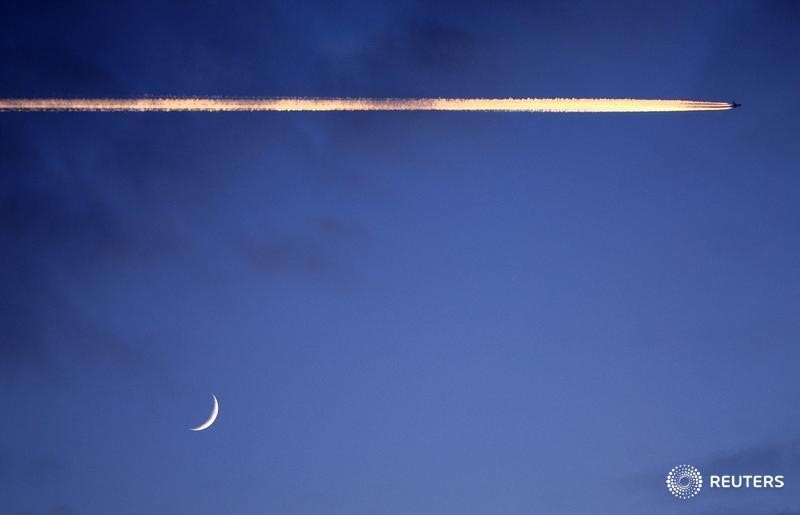(Bloomberg) -- “Flight shame” -- flyers feeling guilty about their carbon footprint -- is a real phenomenon and will raise costs for airlines, consumers and companies, while catapulting emission offsetting into a big business, Citigroup Inc (NYSE:C). predicts.
The cost of offsetting planes’ carbon emissions could become as much as 10 times higher than the airline industry currently estimates, Citi analysts including Mark Manduca said in a note on Wednesday. For economy seats alone, the cost could balloon to $3.8 billion a year by 2025, hurting airlines’ earnings, they said.
Groups such as Greenpeace and Extinction Rebellion and activists like 16-year-old Swedish environmentalist Greta Thunberg are fueling the flight-shame movement by highlighting aviation’s role in global warming. People shunning planes in favor of more climate-friendly alternatives or abstaining from traveling altogether has already had an impact on passenger numbers in parts of Europe.
“The so-called winners of this generational shift will likely be the rail operators, governments, forest owners and carbon schemes,” the Citi analysts said. “If the flight shaming gathers pace, carbon is likely to become a ‘big business’ in its own right.”
While the automobile industry has made strides in using cleaner fuel, the aviation industry continues to warn that reducing carbon emissions will take years, if not decades, given technological limitations and expansion of air travel to an ever-wider slice of the global population. Meanwhile, regulators around the world are considering levying taxes on carriers to offset the environmental impact, and high-speed rail systems are emerging as rivals to airlines.
Every 1% increase in average fares due to higher aviation taxes could curb airline passenger volumes by 0.65%, the analysts wrote.
Many flyers are opting to spend on carbon offsets, or certificates that mitigate their emissions by reducing greenhouse gases elsewhere in the world. The money passengers pay on top of their ticket goes to low-carbon or clean energy projects such as planting trees, installing solar panels or handing out cleaner cooking stoves. Some airlines offer offsets directly when the buyer pays for the ticket, while dozens of online companies advertise personal certificates tailored to each flight.
